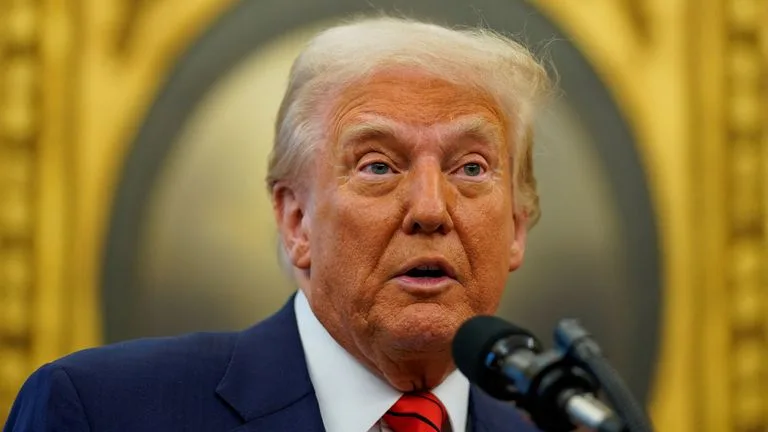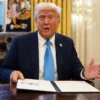The BBC on Monday apologised for editing a speech that gave the impression that US President Donald Trump made “a direct call for violent action” shortly before the January 2021 US Capitol assault, describing it as “an error of judgment.”
The controversy has triggered the dramatic resignations of Director-General Tim Davie and BBC News CEO Deborah Turness, sparked celebrations—and rebukes—from the White House, and reignited debate in the UK over the broadcaster’s perceived impartiality.
In a letter to MPs, BBC Chairman Samir Shah acknowledged that the way Trump’s speech was edited in a flagship documentary “did give the impression of a direct call for violent action” and offered an apology, pledging reforms to strengthen oversight at the publicly funded corporation.
Trump immediately seized on the resignations, accusing BBC journalists of being “corrupt” and “dishonest,” with his press secretary calling the broadcaster “100-per cent fake news.”
Prime Minister Keir Starmer’s spokesman countered on Monday, stressing: “The BBC has a vital role in an age of disinformation. It’s important that the BBC acts swiftly to maintain trust and correct mistakes quickly when they occur.”
Failures and fallout
The crisis emerges as the UK government prepares a politically sensitive review of the BBC’s charter, which governs its funding and operations and expires in 2027.
Facing financial strain in recent years, the BBC has cut hundreds of jobs and is funded by a licence fee paid by anyone who watches live TV in the UK.
Some commentators welcomed the resignations as overdue accountability, while others warned of right-wing influence, including from the US. Karen Fowler-Watt, head of journalism at City St George’s University in London, described the BBC as “now really in a situation of crisis,” noting the challenge of separating genuine editorial mistakes from attacks by politically motivated actors.
Former Conservative Prime Minister Boris Johnson had threatened to stop paying his licence fee over previous disputes, while current Tory leader Kemi Badenoch praised the resignations, citing a “catalogue of serious failures.” Conversely, Liberal Democrat leader Ed Davey urged Starmer to protect the BBC from Trump’s interference, warning: “It’s easy to see why Trump wants to destroy the world’s number one news source. We can’t let him.”
Opinions among Londoners were mixed. Jimmy, a construction worker, said the BBC’s reputation had been “tarnished” and that it had “shown that they’re not impartial.” A 78-year-old writer, Jennifer Kavanagh, said the broadcaster “has always been attacked from the right and from the left. They can never get it right.”
The Trigger: Trump speech edit
The controversy stems from clips spliced together from Trump’s January 6, 2021, speech, making it appear he instructed supporters to march to the Capitol and “fight like hell.” In the unedited footage, Trump had urged the crowd to walk with him and said, “And we’re going to cheer on our brave senators and congressmen and women.”
The issue gained wider attention after the Daily Telegraph reported that internal concerns about impartiality had been raised in a memo by Michael Prescott, a former external standards adviser.
This is not the BBC’s first editorial controversy. Earlier this year, it apologised for “serious flaws” in a documentary about Gaza, which the UK media regulator deemed “materially misleading.” The broadcaster also faced criticism for failing to remove a livestream of punk-rap duo Bob Vylan during Glastonbury Festival after anti-Israel comments were made.


